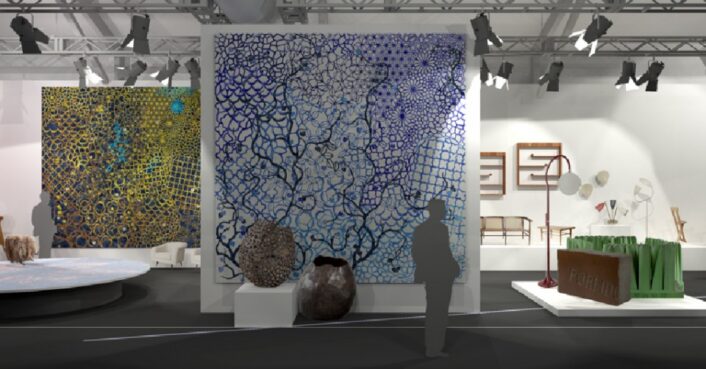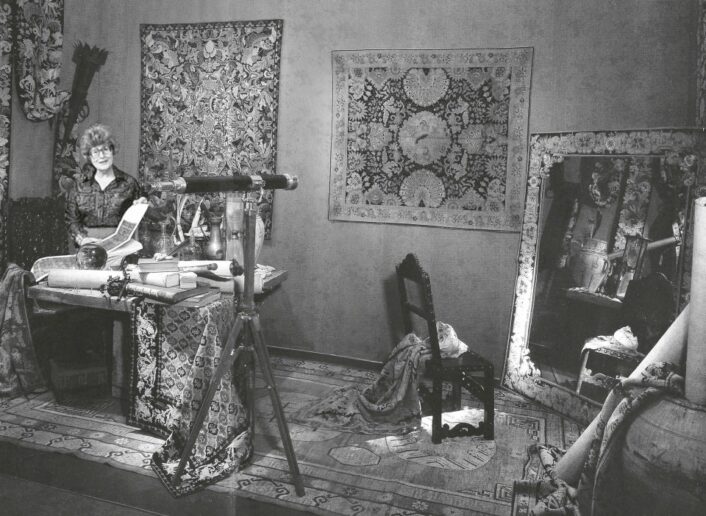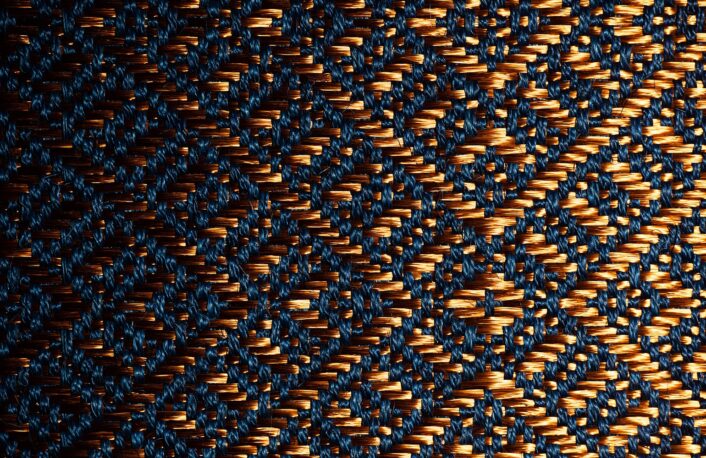Design
Armadillo: rugs with a purpose
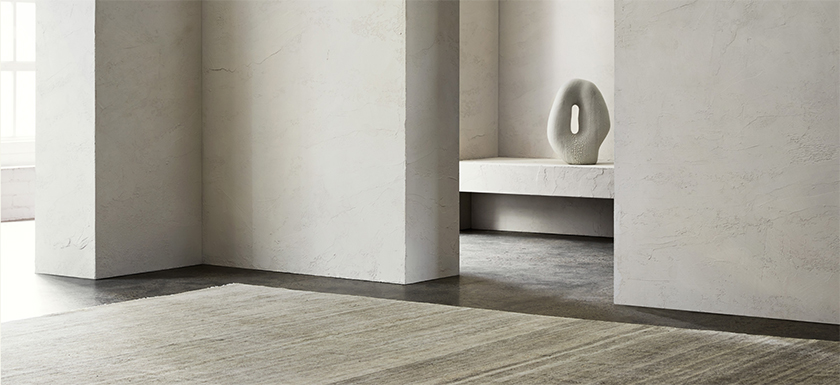
The company’s philosophy of “Quiet Living” employs the principles of slow design. Presently, Slow Movement is at the forefront within the company. Founded in 1986, the philosophy adheres to a cultural shift towards a “gentler pace of life;” one which is full of kindness towards living things, communities, and our environment.
Image courtesy of: Armadillo Rugs
Armadillo was founded in 2009 by Jodie Fried and Sally Pottharst. The pair searched high and low; they were unable to find handmade rugs that aligned with their values. Driven by ethics AND aesthetics, the company only uses natural materials and subscribes to sustainable processes. The founders’ hope is that they can slowly change today’s pre-programed philosophy of a “throwaway culture” while withstanding the ultimate test of time.
The six fundamentals behind the company’s guiding principles are a testament to their strong philosophy:
- Reveal- promising 100% transparency, each rug is handcrafted using natural materials and sustainable energy processes.
- Expand- producing rugs that are made for pure enjoyment and that can produce a meaningful presence on a daily basis.
- Respect- shunning the practice of mass-production, the rugs produced force us the consumer to be conscious about what we bring into our homes.
- Engage- each step of a rug’s journey, from artisan hands to final resting spot, is important and impactful.
- Participate- Armadillo Rug owners become active contributors to an age-old legacy of craftsmanship.
- Evolve- over time the rugs’ patina becomes a part of the rugs’ story… this remains relevant as the rugs pass through multiple generations.
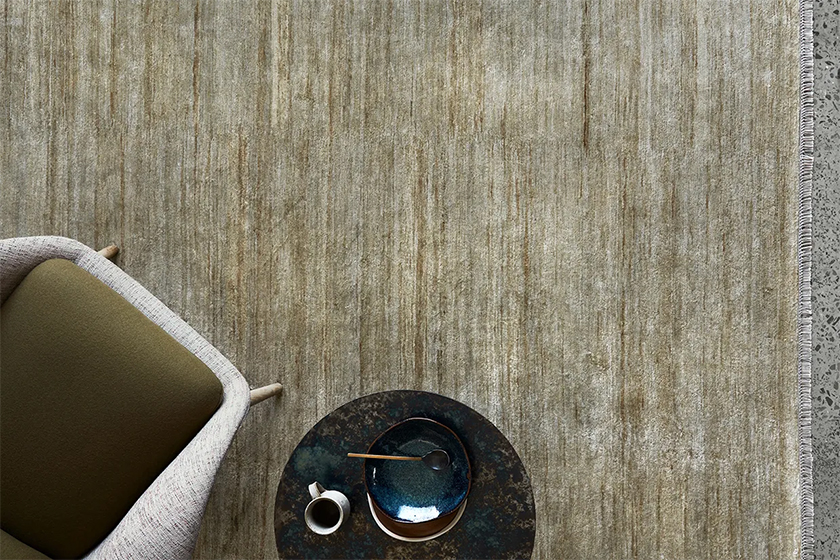
In 2019, the company debuted a line of jute rugs called, “Egyptian.”
Image courtesy of: Architectural Digest
Armadillo stands true to its belief that a machine can not replicate products that are handmade. With artisans who are family, the company draws upon the expertise that has been gained over many generations. Artisans in India share their heritage of craftsmanship into each and every rug that is produced. It is amazing that these skills are being kept alive by a modern company that is committed to authenticity.
The company’s website says it best, “In this busy modern age, objects that are crafted by the human hand not only soothe the senses, they act as visual reminders to be more mindful about what we bring into our homes. A hand-woven rug is ever-present, there to ground and nurture us, compelling us to connect with the people and spaces that surround us.”
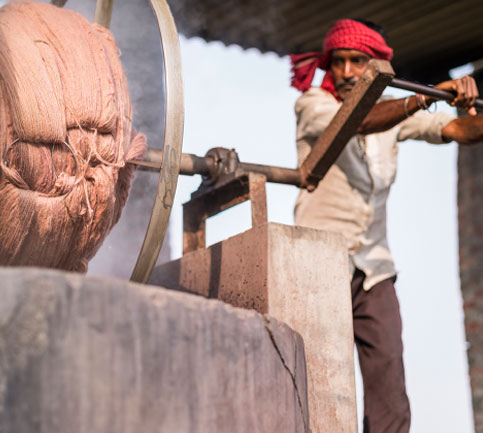
An artisan working on dyeing the yarn.
Image courtesy of: Armadillo Rugs
There are four stages that must occur before a rug is deemed… complete. Dyeing rugs for Armadillo means two things: hand-dyeing and sun-drying. These two elements bring a unique color hue and texture to the yarn. Based upon years of experience, the “recipes” are constantly being tweaked by the company’s dye-masters. Small batch productions employ only a fire, a stirring rod, and a saucepan for the dye bath. Large batches use a hand-turning pole that is studded with hoops. Multi-purposed, the hoops serve as hangers for the skins as they are dipped in and out of the dye caldrons.
The last stages of yarn preparation involves traditional hand-powered winders which are used to guide batches of wool onto spindles. The yarn however is hand-wound lengthways around a specific wooden bobbin, waiting for the loom.
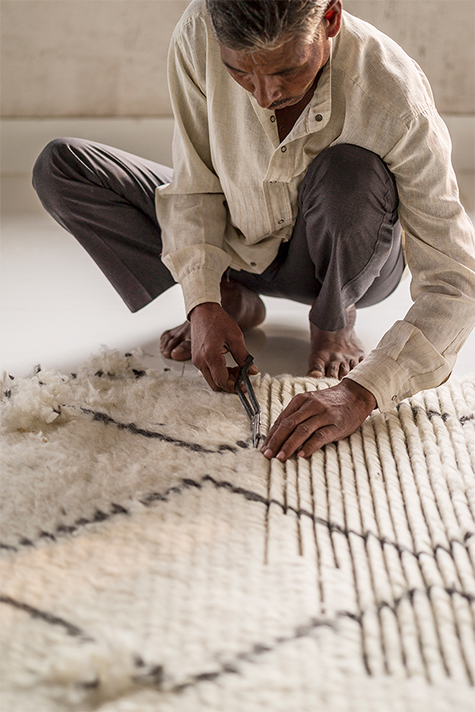
An artisan using scissors to ensure perfection!
Image courtesy of: Armadillo Rugs
Next, the artisans weave the material into the desired design. Amazing to see, the weavers work alongside each other on one loom to produce flat-weave, hand-knotted, and braided rugs. Continued precision ensures that each weave is intentional. Gentle washing tightens the weave and increases its durability. Artisans use wooden paddles to push the soapy water over both sides of the rug prior to rinsing it in a similar manner. The rug is then stitched to a frame and dried in the sun to ensure the shape is retained and the fiber’s appearance is further enhanced.
The rugs are hand-finished; even the edge is overseen using simple tools to fix rogue threads. This final step is the most important… it ensures that each rug is finished in an almost flawless manner. Nevertheless, it is the personal touches and creative strokes of each hand that makes the rugs what they are.
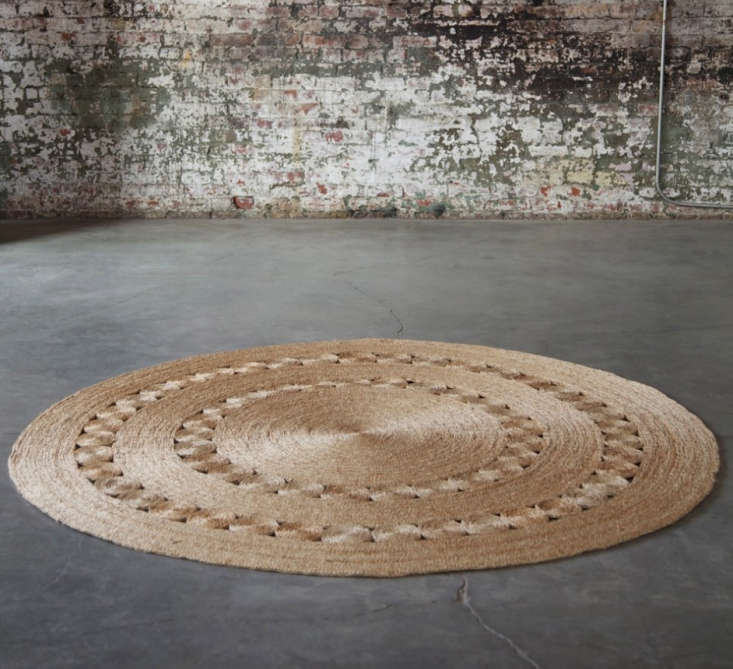
Flower Weave: Dandelion Rug, made from Bangladeshi hemp and stitched together in a circular design.
Image courtesy of: Remodelista
Feeling the need to further assist the under-privileged communities of Armadillo’s artisans, the company founded The Armadillo Foundation in 2017. In India for example, the foundation supports free medical clinics and funds an elementary school in the weavers’ village. Fried said (courtesy of Luxe Source), “We have a team on the ground and our artisans know that if they have a financial or medical need, they can come to us.”
The long-standing sponsor of the Kantilal Vidya Mandir School, Armadillo established this co-ed school in 1987. 204 students attend the school, they are overseen by a principal, ten teachers, and four additional staff. In 2014, Armadillo began to fully fund the school’s budget (salaries, textbooks, uniforms, furniture, teaching aids, utilities, equipment, maintenance, and improvements). Brought into the fold once the foundation was founded, free medical, dental, and eye care is provided for the school’s students; the students’ families and the village’s residents are also able to partake in these amazing benefits.
As consumers become more and more discerning about filling their homes with brands that have purpose, Armadillo continues to strive to ensure that it is one of those that remains at the top of this quickly growing list.
